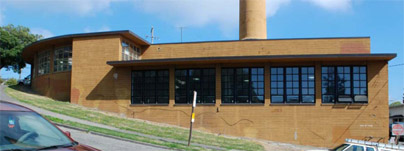 SEATTLE — May 25, 2011 — U.S. Department of Housing and Urban Development Secretary Shaun Donovan today announced the award of $3,109,271 to the Seattle Housing Authority as "seed" funding toward development of early childhood education and adult training facilities for public housing residents. The King County Housing Authority received a similar grant.
SEATTLE — May 25, 2011 — U.S. Department of Housing and Urban Development Secretary Shaun Donovan today announced the award of $3,109,271 to the Seattle Housing Authority as "seed" funding toward development of early childhood education and adult training facilities for public housing residents. The King County Housing Authority received a similar grant.
According to Donovan, "As President Obama has said, if America is to win the future, we need to out-educate the rest of the world. This funding helps public housing agencies that want to provide these services but lacked the resources."
HUD Northwest Regional Adminstrator Mary McBride noted that educational facilities serve to strengthen communities. "These grants will provide a 'spark' that will help both the Seattle and King County housing authorities expand opportunities for residents."
The grant will allow the Steam Plant to be preserved as Yesler Terrace's only uniquely modernist building. It will serve as a reminder of the neighborhood's history and become a permanent home for important self-sufficiency services in the center of the community.
The new center will house Neighborhood House's Head Start program, Catholic Community Service's Youth Tutoring program, an Express Credit Union for affordable financial services, and SEIU training center and Seattle Housing's employment opportunity services.
Development Director Stephanie Van Dyke noted that at first glance, the steam plant may seem an unlikely place for self-sufficiency services.
"With a closer look, the building's potential becomes obvious," Van Dyke said. "It is centrally located near transit, has big rooms with high ceilings, and western exposure with large windows to create light-filled spaces."
Services such as Head Start and Youth Tutoring will be able to re-locate from their current Yesler Terrace spaces, which are less than ideal.
Construction is expected to begin in summer of 2012 and take about a year.
The grant was awarded under HUD's Capital Fund Education and Training Community Facilities (CFCF) Program. This program provides capital funding to Public Housing Agencies (PHAs) for the construction, rehabilitation, or purchase of facilities to provide early childhood education, adult education, and job training programs for public housing residents based on an identified need. PHAs may also use CFCF program funding to rehabilitate existing community facilities that will offer comprehensive, integrated services. These facilities will offer services to help public housing residents achieve better educational and economic outcomes resulting in long-term economic self-sufficiency.
